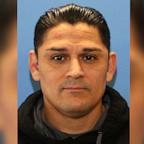To Report or Not? Colleges in Bind on Mentally Ill
April 21, 2007 — -- In the wake of the shooting at Virginia Tech, colleges and universities are re-examining the legal constraints of dealing with mental health crises on-campus.
Under federal privacy laws, colleges are restricted from disclosing mental health information, even to parents. They are also barred from screening students for mental health problems, and from dismissing students, even if school officials believe it is in the student's best interests.
Several high-profile suicide cases in recent years have only served to tighten restrictions. The primary laws at issue are the Family Educational Rights and Privacy Act, the Health Insurance Portability and Accountability Act and, in some cases, the Americans with Disabilities Act of 1990.
These laws were designed to protect students, including those that might be mentally troubled. But legal experts say the reality is that the laws may prevent school officials from taking necessary action, even when the warning signs are clear.
"When these laws serve to tie the hands of school counselors and administrators from helping those students most in need," says Dana Fleming, a legal expert on higher education from the Boston-based firm of Nelson, Kinder, Mosseau, & Saturley, "the purpose of the laws have failed."
Stephen Trachtenberg, president of George Washington University, knows first-hand the "Catch-22" colleges face in dealing with mentally ill students. His school was sued after suspending a student who was deemed a threat to himself and others. The student argued that the school had violated the Disabilities Act, which protects against discrimination based on mental illness.
The university settled out of court last year. But Trachtenberg says the school's responsibility to students must continue to outweigh the fear of litigation.
"Given the choice between doing the right thing and having a lawsuit in which you have to settle the case, I'd rather do that than the wrong thing," he says. "To some extent, we all have to follow our own best angels."




